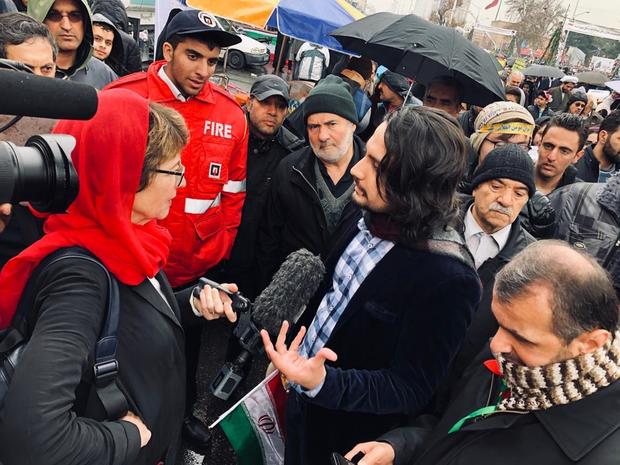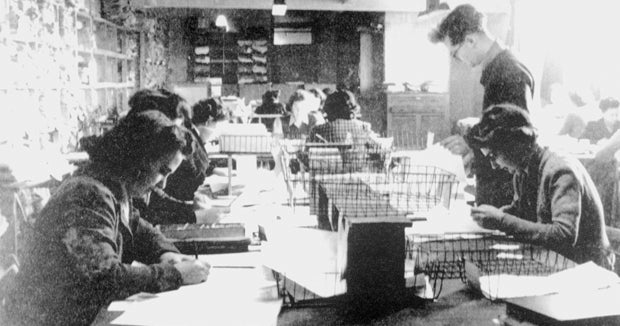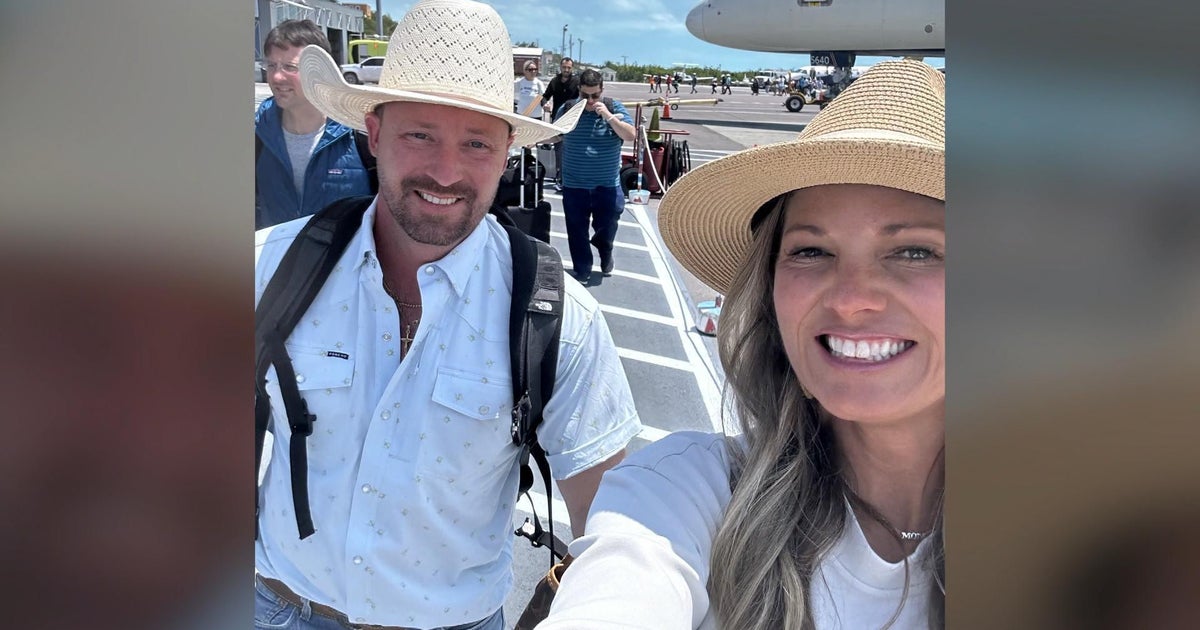CBS News' Elizabeth Palmer on lessons learned as a woman at war
London -- CBS News correspondent Elizabeth Palmer works just down the hall from me, but most of the time, she's not there. Liz, as we call her in the London bureau, is usually on assignment in a foreign country. For almost three decades, Liz has reported from war zones, first for the Canadian Broadcasting Corporation, and since 2000 for CBS News.
When we sat down for a conversation for Women's History Month, she shared some lessons she's learned along the way. While some pertain to being a woman journalist, others are more universal.
Liz tells journalism students they need two things to make it in the business: "curiosity and a perpetual skepticism, a kind of, 'Oh, yeah? Prove it,' sort of attitude." These traits, she believes, have allowed her to thrive. It makes sense – both curiosity and healthy skepticism can help us learn.
She says she's been learning throughout her career -- from reporting for The Haney Gazette in British Columbia, ("It was really part of living in a community, and the police chief I might report on, I'd see at the grocery store the next day,") to covering business news and the oil industry in Calgary, ("I realized if you follow the money, you really understand the guts of a story well,") and then to foreign news, opening the CBC's Mexico City bureau in 1994.
"(It was) a change of focus but not a change in the way I approached the job, which was to be curious and not take anything for granted," Liz told me. "I always enjoyed where I was."
- CBS News' Rita Braver: "Many women got their foot in the door by taking the worst jobs"
- CBS News' Lesley Stahl: "We wanted to prove we could do any story as well as a man... I don't feel I have to prove that anymore"
I have to admit, I didn't always enjoy where I was. I got my first job in television news in my hometown of Fargo, North Dakota. After studying international relations, I had hoped to jump into international news, not potholes and blizzards. But after a few months, I, too, learned to appreciate what I was doing; covering a community I cared about and learning from my experienced colleagues.
Like Liz, I went on to report overseas, starting in Iran, where I found that being a woman journalist can have its advantages (like getting better access to places where only women were allowed) and its disadvantages (like being barred from places where only men were allowed).
Liz told me that although she had similar experiences, she usually sees her job as "gender-neutral," particularly in the Arab world.
"To the men there, Western women kind of do not compute," she has said. "We show up and are bold and forward and show our hair and all that. We're aliens."
And she has had to deal with sexual assault.
In 2002 near Kandahar, Afghanistan, when she met with local fighters for interviews, they surrounded her, and someone grabbed her backside.
"I remember marching out to the head guy and telling him that it was up to him to make sure it stopped," she recalled. "That's something I've done more than once."
At other times, she said there's simply been nothing she could do. She remembers having to cross through a dense crowd in Tehran after a disputed presidential election there in 2009.
"I had my notebook and pen," she told me, "and the whole way through this crowd, I was having my bum grabbed and my breasts grabbed, and this feeling all over my body, and I just had to suck it up."
But she said it didn't make her angry: "I remember thinking, 'it doesn't really matter… It's not going to get anything inside me – my sense of self, my professional prestige, my dignity. I wasn't hurt, and I got to write the story."
Then I reminded her about another instance, in Cairo, that a colleague had told me about, when she had to defend herself with physical force.
She was shooting an "on camera" while covering the 2011 uprising in Tahrir Square, she recalled, and when she turned to leave, she saw a man standing in front of her.
"He just put his hands up and grabbed my breasts," she recalls. "That time I got angry. And I certainly kicked him, and I think I punched him, and he looked astounded."
Liz didn't mention where she kicked him, but her cameraman told me it was where it hurts a man the most.
She may not have meant to share these stories as a guide for future behavior, but I like to think of them as options for different situations that may require different responses.
Liz has had to navigate other challenges as a woman journalist. Take equal pay.
"I never asked for enough at the beginning of my career because I was doing that girl thing," she acknowledged. "I was just trying to please and was being grateful for having a job."
Many years later a woman lawyer told Liz that, compared to her male counterparts, she had been underpaid.
"It's one of the things I try to tell my daughter," Liz explained. "Don't be afraid to ask what you think you're worth. If you're worth a lot, don't be afraid. Make it clear you won't settle for less."
It's also important, she said, for women in journalism to choose partners who support their careers.
"It's a wonderful profession for women," she said. "If they want to have children, they have to marry, as I did… someone who is a homebody." Her husband, Luc, is "the main Mr. Mom character… and that really freed me up."
Luc, and Liz's two children, when they were younger, must have been very understanding. Liz often leaves for weeks at a time for lands riddled with bullets and mortars.
"You can control for risk very well" in high-risk environments, she told me, but there is always going to be a "wild card."
She was reminded of that vulnerability when her friend, American journalist Marie Colvin, was killed in Syria in 2012.
"Marie Colvin was careful and she was hugely experienced," Liz said. "And she just happened to draw the wild card that night."
So is the job still worth doing, I asked Liz, even if she could die doing it?
"Yes," she said, with little pause. "Maybe my kids would say it's a selfish thing to say, but yes, it's made me happy, it's kept me interested, and given me such wonderful adventures and even more wonderful friends and colleagues."




